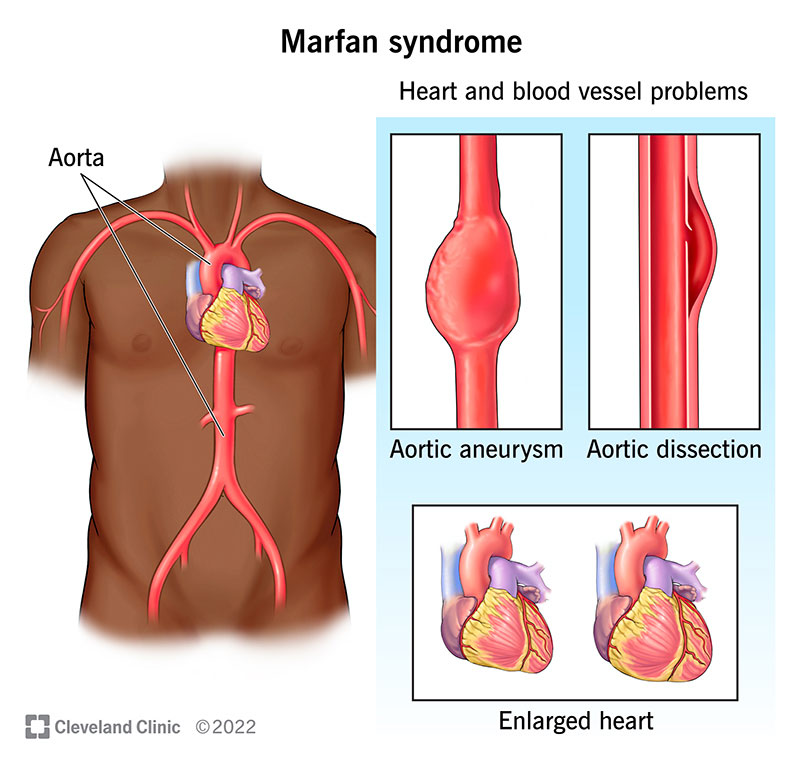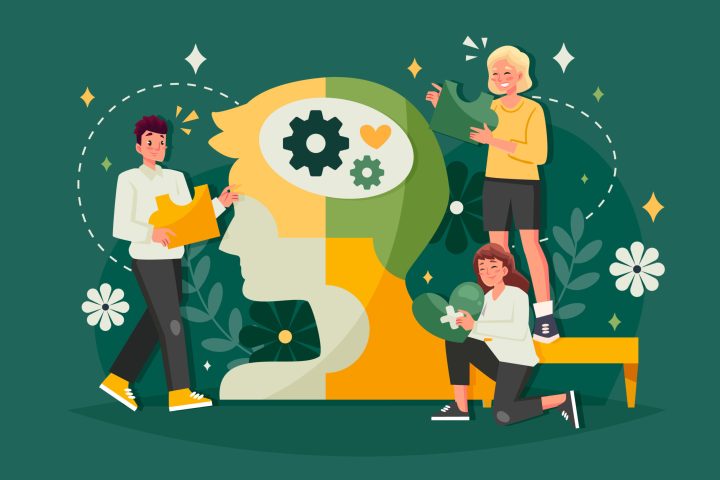Dissection can impact mental health in surprising ways. It may not always be obvious, but the effects can be profound.
Dissecting animals or human cadavers can be emotionally taxing. Many students experience discomfort, anxiety, or even trauma. They may feel distressed by the sight of the internal organs or the act of cutting into something once alive. These feelings can linger, affecting their mental well-being long-term.
Understanding why dissection can be bad for mental health is important. It can help us find better ways to teach biology without causing harm. In this blog, we will explore the reasons behind these negative effects and discuss possible alternatives to traditional dissection. This knowledge can lead to healthier learning environments for everyone.

Credit: onlinelibrary.wiley.com
Topic of Contents
ToggleIntroduction To Dissection
Dissection is a common practice in biology and medical studies. It involves cutting open organisms to study their internal structures. While it helps students learn, it can also cause mental health issues. Understanding its impact is crucial.
Historical Context
Dissection has a long history. Ancient Greeks and Romans used it to learn about anatomy. During the Renaissance, it became more common in Europe. Scientists like Vesalius used it to correct old beliefs. Dissection helped advance medical knowledge.
Educational Importance
Dissection teaches students about anatomy. It shows them how organs work. Many medical schools use it for hands-on learning. Students see real-life examples of what they study in books. It also helps them understand complex biological processes.
Emotional Impact
Dissection can have a profound emotional impact on individuals. While it is often a necessary part of education, the emotional toll it takes should not be underestimated. This section explores the emotional repercussions of dissection, focusing on anxiety and stress and the long-term psychological effects.
Anxiety And Stress
Many students experience high levels of anxiety during dissection exercises. The sight and smell of the specimens can be overwhelming. This can lead to physical symptoms like sweating and a racing heart. Stress levels can spike during these activities. Students may feel pressured to perform well. They might also worry about harming the specimen. Dissection can trigger feelings of guilt and sadness. These emotions can linger long after the exercise is over.
- Anxiety
- Stress
- Guilt
- Sadness
Long-term Psychological Effects
Some individuals may experience long-term psychological effects from dissection. Exposure to these activities can lead to desensitization. This might affect their empathy towards living beings. In extreme cases, dissection can cause lasting trauma. This could manifest as recurring nightmares or flashbacks. For some, these experiences can even lead to a lasting aversion to science. It’s important to acknowledge and address these potential effects. Supporting students emotionally can help mitigate these impacts.
| Potential Effects | Description |
|---|---|
| Desensitization | Reduced empathy towards living beings. |
| Trauma | Recurring nightmares or flashbacks. |
| Aversion to Science | Long-lasting dislike for science subjects. |
Ethical Concerns
Dissection is a topic that raises many ethical concerns. These concerns often affect the mental health of students and professionals. Understanding these concerns is vital for a balanced perspective.
Moral Dilemmas
Dissection can lead to moral dilemmas. Students may feel uncomfortable or guilty. They might question the morality of dissecting animals. This internal conflict can cause stress and anxiety. Here are some common moral dilemmas associated with dissection:
- The value of animal life
- The necessity of dissection for learning
- Personal beliefs about life and death
Cultural Sensitivities
Dissection can also clash with cultural sensitivities. Some cultures hold animals in high regard. Dissecting these animals can be seen as disrespectful or taboo. This can create a cultural conflict. The table below shows examples of cultural sensitivities:
| Culture | Sensitivity |
|---|---|
| Hinduism | Cows are sacred |
| Buddhism | All life is valuable |
| Jainism | Non-violence to all living beings |
These sensitivities can influence a person’s mental health. They may feel conflicted or distressed. Understanding and respecting cultural differences is crucial.
Stress On Students
Dissection in school can cause a lot of stress for students. The pressure to perform well, coupled with the fear of failure, can impact their mental health. This section explores these issues in detail.
Performance Pressure
Students often feel immense pressure to perform well during dissections. They worry about making mistakes. This worry can lead to high levels of stress. The need to achieve good grades adds to this stress. Students may feel they need to be perfect. This mindset can be harmful to their mental well-being. Stress can manifest in various ways. Some students may experience physical symptoms. These include headaches and stomachaches. Others may face emotional issues. Anxiety and depression are common. The following table shows different ways stress can affect students:
| Physical Symptoms | Emotional Symptoms |
|---|---|
| Headaches | Anxiety |
| Stomachaches | Depression |
| Fatigue | Irritability |
Fear Of Failure
The fear of failure is another significant stressor. Students worry about not meeting expectations. This fear can be overwhelming. It can lead to avoidance behavior. They might skip classes or not participate in dissections. This avoidance can affect their learning experience. Fear of failure can also impact self-esteem. Students may feel they are not good enough. This can lead to negative self-talk. They might think they will never succeed. This mindset can be damaging. It can affect their overall mental health. To help students cope, schools can offer support. Providing counseling services can be beneficial. Encouraging a growth mindset can also help. Students should understand that mistakes are part of learning. This can reduce their fear of failure.
Desensitization Risks
Dissecting animals in studies can affect mental health. Over time, students may become desensitized to harm. This can lead to reduced empathy.
Impact On Empathy
Dissection can desensitize individuals to suffering, reducing empathy levels.
Normalization Of Violence
Repeated exposure to dissection can normalize violence in individuals. Desensitization Risks Dissection can desensitize individuals to suffering, reducing empathy levels.
Impact On Empathy
– Exposure to dissection can reduce sensitivity to others’ pain. – Desensitization can lead to decreased compassion towards living beings. – Diminished empathy may impact personal relationships and social interactions.
Normalization Of Violence
– Regular dissection can normalize violence in individuals. – Repetitive exposure may desensitize individuals to the value of life. – Normalization of violence can have long-term psychological effects.
Alternatives To Dissection
Dissection can be traumatic. It can cause stress and anxiety. Fortunately, there are alternatives to dissection that can provide a similar learning experience without harming mental health. These methods are effective, humane, and educational.
Virtual Simulations
Virtual simulations offer an excellent alternative to traditional dissection. They allow students to explore the anatomy of different organisms on a computer. These simulations are interactive and can be repeated multiple times. Here are some benefits of virtual simulations:
- Reduce stress and anxiety
- Provide a realistic learning experience
- Can be accessed anytime, anywhere
3d Models
3D models are another great alternative. These models are made from materials like plastic and silicone. They replicate the anatomy of real organisms. Students can handle these models, which helps them understand complex structures. Benefits of 3D models include:
- Hands-on learning without harm
- Reusable for multiple classes
- Environmentally friendly
Both virtual simulations and 3D models are effective tools. They offer humane and stress-free ways to learn. These methods are the future of anatomy education.
Support Systems
Support systems play a crucial role in maintaining mental health, especially for students involved in dissection. They help manage stress, anxiety, and other emotional challenges. Below, we will explore different types of support systems.
Counseling Services
Many educational institutions offer counseling services to help students cope with the emotional impact of dissection. These services provide a safe space to talk about your feelings.
- Professional counselors are trained to handle sensitive topics.
- They can offer personalized coping strategies.
- Sessions can be one-on-one or in group settings.
Counselors can also help identify any underlying mental health issues that may need attention. They are a vital part of the support system, offering both short-term relief and long-term care plans.
Peer Support Groups
Peer support groups provide a different type of emotional support. These groups consist of fellow students who understand what you are going through.
- Sharing experiences can make you feel less isolated.
- Group discussions can offer new perspectives.
- Peers can share coping mechanisms that have worked for them.
These groups often meet regularly, creating a sense of community. Knowing that you are not alone can significantly reduce stress and anxiety. Both counseling services and peer support groups are essential components of a robust support system. They help students navigate the emotional challenges of dissection, ensuring better mental health.
Future Directions
The topic of dissection in educational settings raises significant concerns about mental health. Students often experience stress and anxiety during dissection sessions. These experiences can have long-lasting impacts on their mental well-being. Understanding these effects is crucial for creating healthier learning environments.
Policy Changes
Educational institutions need to review and update their policies on dissection. Alternative methods should be promoted to reduce stress. Options like virtual dissections or 3D models can be effective. These methods can provide the same learning outcomes without causing distress.
Advocacy And Awareness
Raising awareness about the mental health impacts of dissection is essential. Schools and educators must understand the potential risks involved. Advocacy groups can play a key role in spreading this information. They can help in pushing for changes in school curriculums. Parents and students should also be informed. Knowing the available alternatives can help them make better decisions. Awareness campaigns can highlight the benefits of non-invasive learning tools. This can lead to a broader acceptance of these methods.

Credit: my.clevelandclinic.org
Conclusion
Dissection can significantly impact mental health. The process can trigger stress and anxiety. Emotional distress from dissecting animals is common. Students may develop long-term trauma. Mental health should be a priority. Schools need to consider alternative methods. Virtual dissections can be effective and humane.
Protecting mental well-being is essential. Educators must create a supportive environment. This ensures students feel safe and respected.
Frequently Asked Questions
How Can Dissection Affect Mental Health?
Dissection can cause stress, anxiety, and emotional distress. It might trigger traumatic memories or phobias.
What Are The Signs Of Dissection-related Stress?
Signs include sleeplessness, anxiety, avoidance of dissection, and feeling overwhelmed. Emotional outbursts may also occur.
Can Dissection Cause Long-term Mental Health Issues?
Yes, it can lead to lasting anxiety, depression, or PTSD. Especially if the experience was traumatic.
How To Cope With Dissection Anxiety?
Talk to a counselor, practice relaxation techniques, and seek support from peers. Avoid isolation.
Are There Alternatives To Dissection In Learning?
Yes, digital simulations, 3D models, and videos are effective. They provide a humane, stress-free option.







